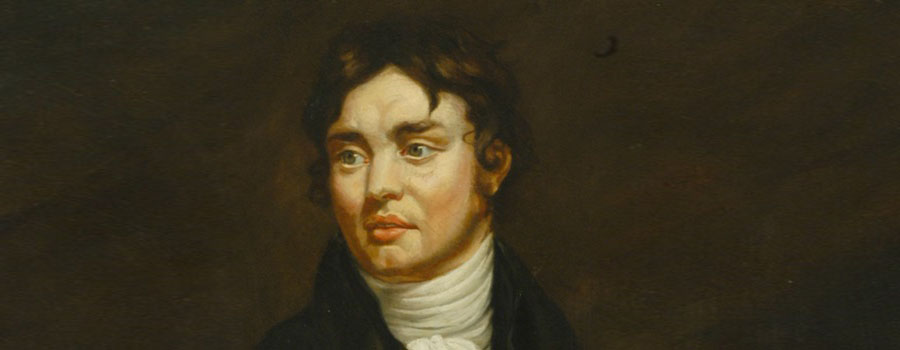Toshiaki Omori, master shoemaker. Compare.
Creativity
Annie Lennox on Creativity
The Value of Uncertainty
“You have to have an idea of what you are going to do, but it should be a vague idea.”
— Pablo Picasso
Quote of the Day
“A ship in harbor is safe, but that’s not what ships are for.”
— William G.T. Shedd
Joan Acocella: Blocked

“Yesterday was my Birth Day,” Coleridge wrote in his notebook in 1804, when he was thirty-two. “So completely has a whole year passed, with scarcely the fruits of a month. —O Sorrow and Shame…. I have done nothing!”
In a 2004 piece in the New Yorker, Joan Acocella considers writers block. Why exactly do writers stop writing? (Pictured: Samuel Taylor Coleridge, one of the first known sufferers of writers block, a condition that does not seem to have existed, as such, before the early 19th century.)
Malcolm Gladwell: Late Bloomers
Prodigies like Picasso … tend to be “conceptual,” [the economist David] Galenson says, in the sense that they start with a clear idea of where they want to go, and then they execute it. “I can hardly understand the importance given to the word research,” Picasso once said in an interview with the artist Marius de Zayas. “… I have never made trials or experiments.”
But late bloomers, Galenson says, tend to work the other way around. Their approach is experimental. “Their goals are imprecise, so their procedure is tentative and incremental,” Galenson writes…
Malcolm Gladwell, “Late Bloomers,” on precocious vs. late-blooming artists, and two very different types of creativity: conceptual and experimental. This article helped me understand myself and my own (experimental) creative method, and it is still a consolation to me. (More here.)
Steve Jobs on ideas vs. execution
One of the things that really hurt Apple was after I left, John Sculley got a very serious disease. And that disease — I’ve seen other people get it, too — it’s the disease of thinking that having a great idea is really ninety percent of the work. And if you just tell people, “Here’s this great idea,” then of course they can go off and make it happen. The problem with that is that there’s a tremendous amount of craftsmanship between having a great idea and having a great product.
Steve Jobs (via david)
Tchaikovsky: Work without inspiration
Do not believe those who try to persuade you that composition is only a cold exercise of the intellect. The only music capable of moving and touching us is that which flows from the depths of a composer’s soul when he is stirred by inspiration. There is no doubt that even the greatest musical geniuses have sometimes worked without inspiration. This guest does not always respond to the first invitation. We must always work, and a self-respecting artist must not fold his hands on the pretext that he is not in the mood. If we wait for the mood, without endeavouring to meet it half-way, we easily become indolent and apathetic. We must be patient, and believe that inspiration will come to those who can master their disinclination.
A few days ago I told you I was working every day without any real inspiration. Had I given way to my disinclination, undoubtedly I should have drifted into a long period of idleness. But my patience and faith did not fail me, and today I felt that inexplicable glow of inspiration of which I told you; thanks to which I know beforehand that whatever I write today will have the power to make an impression and to touch the hearts of those who hear it. I hope you will not think I am indulging in self-laudation if I tell you that I very seldom suffer from this disinclination to work. I believe the reason for this is that I am naturally patient. I have learnt to master myself, and I am glad I have not followed in the steps of some of my Russian colleagues, who have no self-confidence and are so impatient that at the least difficulty they are ready to throw up the sponge. This is why, in spite of great gifts, they accomplish so little, and that in an amateur way.
Pyotr Tchaikovsky, letter to a benefactor, 1878 (via Brain Pickings)